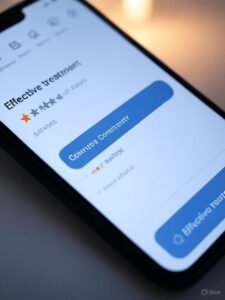Well, now let’s talk honestly about weight loss. It is a journey full of hope, frustration and lots of questions.
When my readers repeatedly asked me to know about Zepbound, I am honest – I was a little hesitant because this is a serious thing, it is a prescription medicine, not a general supplement.
But then I read people’s experiences… about a mom who finally found the energy to play with her kids without getting tired, and comments from some people who were free from the constant “food noise” for the first time.
That’s why I decided to go beyond the headlines. I spent months looking at clinical data, talking to doctors, and reading hundreds of user experiences on forums. I talked to people who had amazing success and also those who had to stop because of side effects.
My goal is not to sell you anything, but to give you a complete, honest picture – both its exciting potential and hard realities – so that you can have an informed conversation with your doctor.

Important Disclaimer: Please read first
- I am not a doctor, pharmacist, or medical professional. I am a researcher and content creator.
- This article is a compilation of my research on Zepbound’s clinical data and user experiences. It is absolutely not a medical advice.
- You can only make the decision to use Zepbound with a qualified healthcare provider who knows your full medical history.
- Please talk to your doctor.
What is Zepbound? Understand the basics
Let’s understand the basics. Zepbound (its generic name is tirzepatide) is an injectable prescription medication approved by the FDA specifically for chronic weight management.
It is designed for adults who have:
- Body mass index (BMI) 30 kg/m² or higher (which is considered obesity), or
- BMI 27 kg/m² or higher (which is considered overweight) and at least one weight-related condition such as:
- High blood pressure
- Type 2 diabetes
- High cholesterol
This is not a “magic shot” for a 5-pound weight loss for a wedding. This is a serious tool for a serious health condition.

How does Zepbound work? (Science in simple words)
This is the interesting part. Zepbound acts like a master key for your body’s hormonal pathways that control appetite and metabolism. It targets two key hormones:
- GLP-1 (Glucagon-like peptide-1): This hormone tells your brain when you are full, slows the speed of food passage from the stomach (making you feel full longer), and helps regulate blood sugar.
- GIP (Glucose-dependent insulinotropic polypeptide): This hormone also helps manage blood sugar and can enhance the fat-burning effects of GLP-1.
By working on both fronts, Zepbound effectively does the following:
- It puts the brakes on your appetite. Constant thoughts about eating (“food noise”) are greatly reduced.
- It helps you stay full. You feel satisfied with smaller portions because food is digested slowly.
- It helps your body manage blood sugar and metabolize fat effectively.
Think of it as a mega-boost to your body’s natural “I’m full” signals.
Real Question: How effective is Zepbound?
The results are, frankly, staggering. This is not a hype; it’s backed by massive clinical trials.
Gold-standard data comes from the SURMOUNT clinical trial program. After 72 weeks they found:
Clinical Trial Results (SURMOUNT)
- Significant Weight Loss: Participants taking Zepbound lost an average of 22.5% of their starting body weight. In simple terms, if someone weighed 230 lbs, they lost approximately 52 lbs.
- Better Than Other Medicines: This level of weight loss is higher than other popular medicines such as semaglutide (Wegovy).

Health Benefits Beyond Weight Loss
- Diabetes Risk Reduction: A separate trial (SURPASS) showed that the risk of developing type 2 diabetes in pre-diabetic patients was reduced by 94%.
- Sleep Apnea: It has recently been approved for treatment of obesity-related sleep apnea, trials have shown that it can reduce events by up to 63%.
Real User Experiences (Life-Changing Benefits)
But beyond the numbers, the real-world benefits people report are life-changing:
- “The constant conversations I used to have about food just stopped.”
- “I finally feel in control of my eating habits.”
- “My energy levels have gone up so much – I can easily keep up with my kids.”
- “My blood pressure and cholesterol numbers are the best they’ve been this year.”
The Note-So-Glamorous Side: Downsides and Side Effects
This is the part you need to pay attention to. Zepbound’s power comes at a cost, and for some people, this can be too much to handle.
Very Common Side Effects (most people experience one of these)
These are mostly gastrointestinal and usually resolve in a few weeks after the body adjusts:
- Slight nausea (most common)
- Diarrhea
- Constipation (constipation)
- Vomiting
- Stomach pain
- Reaction at injection site (redness, itchiness)
- Fatigue

Tips to manage them:
Doctors recommend starting with a low dose and gradually increasing it. Eating small, simple and bland meals and avoiding high-fat foods helps a lot. Staying hydrated is very important.
Serious (but less common) Risks
These are rare but require medical attention:
- Pancreatitis: inflammation of the pancreas.
- Gallbladder problems: such as gallstones.
- Kidney injury: often associated with severe dehydration caused by vomiting/diarrhea.
- Severe allergic reactions
- Low blood sugar (hypoglycemia): especially if you are taking any diabetes medicines.
- Thyroid C-cell tumors: this has been seen in animal studies. Whether this risk applies to humans is unknown, but Zepbound is not recommended for people who or their family members have a history of Medullary Thyroid Carcinoma (MTC) or Multiple Endocrine Neoplasia syndrome type 2 (MEN 2).
The Mountain You Have to Climb: Cost and Accessibility
Let’s talk about the big problem: the price tag.
- Sticker Shock: Without insurance, the list price for a month’s supply of Zepbound is over $1,000.
- The Insurance Battle: Coverage varies. Some plans cover it for weight management, some ask for prior authorization, and many don’t cover it at all. You will need to call your insurance provider and ask about “tirzepatide for weight management”.
- Savings Cards: The manufacturer, Eli Lilly, offers a savings card that can reduce the cost to $25 per month for people whose commercial insurance covers it. For those who do not have coverage, the card shaves hundreds of dollars off, but you may still have to pay $500-$700 per month.
This financial hurdle is the biggest reason why people who want to take this medicine cannot take it or have to stop.
The Real Scoop: What are users actually saying?
Reading forums and reviews shows a clear pattern. People are passionate about this drug, good or bad.
The Rave Reviews (Positives):
- “Life-changing. I lost 80 pounds in 9 months. My arthritis pain is gone, and I am free from my blood pressure medications. I have tried everything in 20 years, and this is the only thing that worked.”
- “The peace of mind is the best part. I don’t think so much about my next meal anymore.”
- “Taking the injection is easy. The side effects were rough (slightly) in the first month, but by week 5 they went away completely. Stick with it!”
The Critical Reviews (Negatives):
- “Side effects were unbearable. I was vomiting 3 times a week and constantly feeling tired. I had to quit after 2 months, even though I was losing weight.”
- “My insurance doesn’t cover even a penny. I can’t afford $1,000 a month. It’s heartbreaking.”
- “Don’t make constipation funny. I have to use prescription laxatives to manage it. It’s a real struggle.”

Weighing It All Up: The Clear-Cut Pros and Cons
Pros :
Unparalleled Efficacy: Arguably the most effective weight-loss medication on the market.
Health Benefits Besides Weight: Reduces risk of diabetes, improves cardio-metabolic health, and treats sleep apnea.
Convenient Dosing: One injection per week.
Appetite Control: Effectively reduces hunger and food-focused thoughts.
Cons :
- Significant Side Effects: GI issues are very common and can be severe for some people.
- Prohibitive Cost: Very expensive without insurance coverage.
- Not a Quick Fix: Requires long-term commitment to lifestyle changes.
- Medical Risks: Serious, even if rare, there is potential for side effects.
Final Verdict: So, Is Zepbound Worth It?
After doing all the research, this is my honest, human opinion.
Zepbound is a revolutionary tool, but it is not a magic wand. It is a powerful medical intervention for a significant health condition.
Read more: Fast Loan Advance Reviews: Guide to Quick Cash Loans ❤️
This could be for you if:
- You meet the BMI criteria.
- You have struggled to lose weight with diet and exercise.
- You have weight-related health issues.
- You are prepared to manage potential side effects.
- You have insurance coverage or you can afford significant out-of-cost.
- You understand this is a long-term tool, not a short-term fix.
This may not be for you if:
- You just want to lose some weight.
- You are not ready to deal with nausea or other GI side effects.
- Cost is a barrier for you.
- You have a history of thyroid cancer or pancreatitis.
This journey is personal. For some people, Zepbound is that must-have that unlocks a healthier life. For others, side effects or cost make it impossible. The most important step is the first one: having an open, honest conversation with your trusted doctor.








